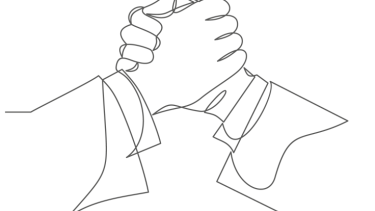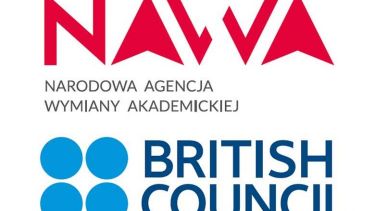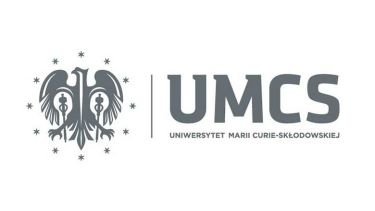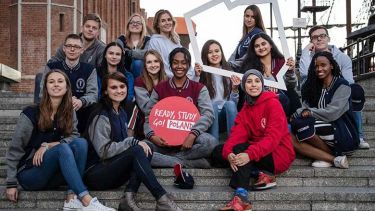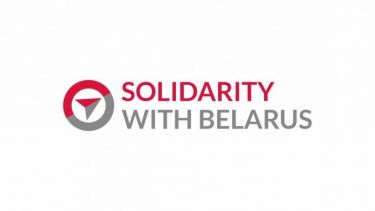Process of the internationalization is the story that never ends. With the new website researchinpoland.org, NAWA, Polish National Agency for Academic Exchange, writes its next chapter by bringing new quality in promotion of Polish science and strives to facilitate inflow of foreign researchers and PhD candidates to Poland.
The golden triangle
Within almost 4 years of its functioning NAWA has been consequently building position of the key player aiming for the internationalization of the Polish science. Its first and foremost task was to build up the offer, which proved to be very successful – from just a few initially, now it runs around 30 programs, maintaining balance between the offer for the students, institutions, scientists and Polish language learners. On the other hand, the Agency took care of creating number of partnerships – both with the international and Polish counterparts. Signing agreements on cooperation with its two local peers - The National Centre for Research and Development (NCBR) and National Science Center (NCN) led to creation of the “golden triangle” of the Polish funding agencies: academic mobility-applied research-basic research. This in turn, brought added value from the perspective of the foreign researchers – joint programs and additional financing became available in a few various areas.
Spreading awareness
To fully use and promote created synergies NAWA launched brand new website “Research in Poland”, or RinPL. The page has been designed in a way that enables maximal facilitation of getting both big picture of the existing research opportunities in Poland and organizing their stay for those who would consider relocating to the Maria Curie-Sklodowska’s homeland. It should be also helpful with understanding details of the ongoing calls and current developments in the Polish science. RinPL can serve as a source of the extensive information on grants, scholarships and scientific events, vacancies at the universities and research units and projects in Poland. Perhaps the most useful tool is search engine that will enable users finding grants funded by NAWA and its partners. The great advantage here is the fact that database of the aforementioned opportunities continues to be created with multitude of partners, including both NCBR and NCN but also Polish Academy of Sciences, Lukasiewicz Research Net, Foundation for Polish Science and naturally Polish universities, making it comprehensive tool indeed.
Wide variety of options
Regardless of the stage of the career, foreign researchers can find plenty of attractive options in Poland. PhD candidates for example have probably one of the friendliest system in the whole world, without tuition fees and with expanded system of scholarships and studies available in both Polish and English. “Enthusiastic early career investigators” as nicely said by Mattia Pierpaoli, PhD, visiting scientist at Gdansk University of Technology, can apply for Ulam scholarship with NAWA. Apart from very decent scholarship, access to one of the most modern scientific infrastructure system across the Europe and possibility to propose own research topic, one can expect friendly reception as noticed by Mr. Pierpaoli in his interview to NAWA. It is also worth to mention here the new program for world-class professors – NAWA Chair. Introduced in 2020, with very generous funding secured, it aims at achieving groundbreaking results in the teams led by the scientists with outstanding international achievements and working with Polish teams. And the above is just a small part of the Polish offer with many different calls open all year round.
In Poland or with Poland?
Nowadays it became obvious that all kinds of international partnerships are possible without physical mobility or with its very limited degree. Therefore, from the perspective of the foreign scientists who for any reasons would prefer to stay in their home countries while working with Polish colleagues it would be beneficial to know another part of the research landscape that is presented at RinPL, i.e. two institutional programs that Polish universities take part in – European Universities and Initiative of Excellence – Research Universities. Under the first one, that is part of forming European Education Area, total of 10 Polish universities joined different European universities alliances with the aim of facilitating exchange of students and scientists and ultimate goal of conducting joint study programs or scientific projects. In its turn Initiative of Excellence, which is internal Polish program, supports awarded universities with additional funding from the state budget for the implementation of the research development plans included in their competition applications.
(Already) applied science
While learning about new grants and understanding who is who in Polish science is definitely important, probably the key factor before making decision to apply for one of them and possibly moving to Poland for a couple of years, is experience of working with Polish scientists and institutions so far. For those who did not have chance to have it personally, RinPL will be highlighting examples of international academic partnership with Polish participation. It is going to be easy enough, at least in that respect that Polish researchers value mobility themselves and travel extensively for professional purposes. Additionally, with one of the largest diaspora in the world (approximately 17 mln people around the world has Polish roots, in comparison to 38 mln living in Poland itself) there are even more success stories to present. One great example could be Dr Artur B. Chmielewski, son of the iconic Polish illustrator “Papcio Chmiel” and project manager in charge of space missions at NASA’s Jet Propulsion Laboratory.
Mr. Chmielewski who recently gave inspiring interview to Polish weekly “Polityka” said that getting to NASA has been always his dream but it was not easy at all. Possibly his and other stories of Polish scientist and their international teams will serve as inspiration for the researchers considering Poland as a next step on their career paths.

